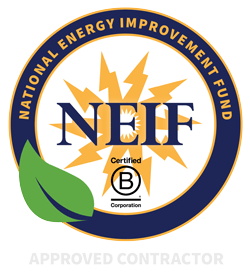10 Common Causes for Furnace Electrical Failure
- Heating
- Miscellaneous

Your heating system broke down in the middle of the coldest night of the season. Oh no! Before you call a professional for furnace repair, you need to know what caused your system trouble to begin with. If it’s a result of bad electrical connections, you definitely need to know what went wrong, even it just comes down to a blown fuse. The clock is ticking, and the weather isn’t getting any warmer.
Here, we’ll explain what kinds of electrical problems can sink your furnace’s performance so you can call for help before you’re left without heat at all.
The Importance of Furnace Maintenance
Your furnace has a big job. It’s tasked with keeping your family warm and comfortable during the winter months. With proper maintenance, your furnace will continue to heat your home efficiently for many years to come, helping you save money on utility bills while providing a steady flow of heat throughout your home. If left unattended to, however, your furnace could leave you facing costly repair or replacement bills. Improperly maintained furnaces often have shorter life spans and increased safety hazards. Not to mention, they can leave homeowners without heat when they need it most.
10 Common Causes of Furnace Failure
Wondering what leads to furnace electrical failure? The following are 10 common problems incurred by improperly maintained furnaces:
- Clogged filter. Dirty or clogged filters reduce airflow, which ultimately forces the furnace to work harder to circulate air. Clogged filters can also damage the limit switch, which is responsible for controlling the fan. Be sure to clean your filters regularly, or simply swap them out for new ones.
- Loose wiring. When your furnace is running, it causes a certain amount of vibrations. Over time, these vibrations can cause internal wiring to become loose, which can eventually lead to an electrical short. A single loose wire can be difficult to find, so it’s best to have regular tune-ups to ensure your wiring stays tightly connected.
- Incorrect fuses. It’s essential to equip your furnace with fuses large enough to handle the capacity of your heating system. If a fuse is too small, it will almost assuredly result in electrical problems.
- Dirty fuses. Dirt and soot are normal parts of your furnace’s daily life, but it’s important not to let these elements build up. Excessive grime can impede your fuses from being able to connect to the electrical components. To ensure sustained connectivity, be sure to keep your fuses cleaned as part of regular, ongoing maintenance.
- Exposure to water. Water and electricity don’t mix. If your furnace is tucked away in a damp place or located near any water leaks, an electrical failure is likely in your future. Seal any leaks to remove excessive moisture that could cause your furnace’s electrical system to fail.
- Transformer failure. Transformers are responsible for converting energy into the correct voltage necessary to run your furnace’s controls, ignition, and timer. If your transformer isn’t functioning properly, it won’t support your home’s electrical system correctly. If you’re unsure about your transformer’s capacity, it’s best to contact an HVAC professional as soon as possible.
- Faulty starting capacitor. The capacitor is to your furnace as the starter is to your car. It’s necessary to get the system started. If your capacitor is on the fritz, it may cause intermittent electrical problems. Faulty capacitors can be replaced fairly inexpensively, which should solve the problem.
- Faulty blower motor. Motors require a good amount of energy. If your blower motor is failing, it will put additional strain on your power source, eventually leading to an electrical short. A faulty blower motor should be replaced by an HVAC expert.
- Failed valves. Natural gas or propane furnaces are equipped with valves that regulate gas pressure. If a valve is malfunctioning and unable to open and close properly, the pressure regulators will not work properly. This can cause the malfunctioning valve to heat up, resulting in an electrical short and a blown fuse.
- Thermostat control wiring problems. There are plenty of wires surrounding your furnace, and if someone isn’t careful, he or she could inadvertently move or disconnect the wires that interact with your thermostat. The control board of your furnace has a separate fuse that keeps it from getting too hot. Beyond the surface lies your furnace’s wire frame, which can easily be the culprit for blown fuses and short circuits, particularly if someone erroneously found their way to this thermostat control system and relocated some of the wiring.
When it comes to your home heating system, it’s always better to be proactive, rather than reactive. Furnace electrical failure can leave you out in the cold when you need heat the most. To ensure your heating system stays healthy and happy, schedule regular furnace tune-ups with HVAC professionals.
For More Information on All Things Heating Maintenance, Call NSHEC Today!
Contact North Shore Home Energy Today for the Best in Heating Maintenance!
Check Out Our Current Specials!
Read The Great Things That Your Neighbors Are Saying About NSHEC.





